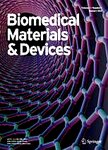版权所有:内蒙古大学图书馆 技术提供:维普资讯• 智图
内蒙古自治区呼和浩特市赛罕区大学西街235号 邮编: 010021

作者机构:Department of Computer Science and Engineering Jagannath University Dhaka India Department of Computer Science and Engineering Green University of Bangladesh Dhaka Bangladesh Department of Computer Science and Engineering International University of Business Agriculture and Technology Dhaka Bangladesh Crown Institute of Higher Education 116 Pacific Highway North Sydney 2060 NSW Australia Department of Computer Science and Engineering Bangamata Sheikh Fojilatunnesa Mujib Science and Technology University Jamalpur Bangladesh School of Information Technology Deakin University Waurn Ponds Campus Geelong Australia
出 版 物:《Biomedical Materials and Devices》 (Biomedical Mater. Devices)
年 卷 期:2025年第3卷第2期
页 面:1433-1447页
基 金:Centre for Cyber Resilience and Trust Core Research for Evolutional Science and Technology, CREST National Science and Technology Council, NSTC National Science and Technology, (2022–23)
主 题:Densenet121 Feature fusion Hybrid deep learning InceptionV3 Skin cancer Transfer learning
摘 要:Skin cancer is a potentially life-threatening disease resulting from DNA damage, where early detection is critical to improving survival rates. This study introduces an advanced hybrid deep learning framework designed to enhance the accuracy of skin cancer classification, distinguishing between benign and malignant lesions. Our approach begins with data pre-processing to improve input quality, followed by training two high-performing pre-trained deep learning models, InceptionV3 and DenseNet121. We then apply a weighted sum rule for fusion of the model predictions, leading to high accuracy and generalizability across datasets. On the primary dataset, our hybrid model achieved 92.27% accuracy, 90.80% precision, 92.33% sensitivity, 92.22% specificity, and a 91.57% F1 score. Notably, the model also demonstrated robustness on an external dataset, achieving 93.45% accuracy, 91.87% precision, 93.04% sensitivity, 93.18% specificity, and a 92.30% F1 score, outperforming existing models. This study offers a reliable, highly generalizable solution for automated skin cancer diagnosis and represents a valuable contribution to early detection methods, with the potential to improve patient outcomes significantly. © The Author(s), under exclusive licence to Springer Science+Business Media, LLC, part of Springer Nature 2024.